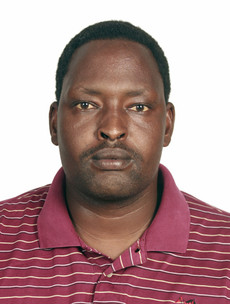Edward Loure
Laureate

Ujamaa Community Resource Team
Tanzania, United Republic of
Biodiversity / Nature Conservation
The Goldman Environmental Prize, 2016
Edward Loure Tanzania 2016 Recipient for Africa Tapping into the communal culture of northern Tanzania’s indigenous people, Edward Loure pioneered an approach that gives land titles to communities—instead of individuals—of pastoralists and hunter-gatherers, ensuring the environmental stewardship of their land for future generations. A growing demand for limited rangeland In the northern rangelands of Tanzania, communities of pastoralists and hunter-gatherers have sustainably lived off the land for generations, in coexistence with migrating native wildlife. Maasai communities move their herds according to the seasons, taking care not to overgraze the land and share resources with the wildebeest, gazelles, impalas, and other animals that keep the ecosystem in balance. Starting in the 1950s, the establishment of national parks have pushed out indigenous peoples from their traditional lands, causing them to become “conservation refugees.” In recent years, these conflicts have grown. Urban migrants encroach on rangelands traditionally managed by the Maasai, and the government sells land concessions to a burgeoning safari and hunting industry. These deals were often made in secrecy, without consulting the politically marginalized local people. The increased competition over limited land has not only disrupted the balance of the ecosystem, but also physically displaced the native peoples whose existence and livelihoods had played a key role in protecting the wildlife and environment. Meanwhile, the revenue created from the tourism industryrarely flows back to benefit the displaced communities. Communal culture, communal land rights Born to a Maasai tribe, Edward Loure grew up in the Simanjiro plains. UJAMAA COMMUNITY RESOURCE TEASM (UCRT) The Ujamaa Community Resource Team is a grassroots organization committed to bringing about positive change in our communities. We work across northern Tanzania and have helped more than 86 communities secure 900,000 hectares [~9,000 km

 EN
EN
